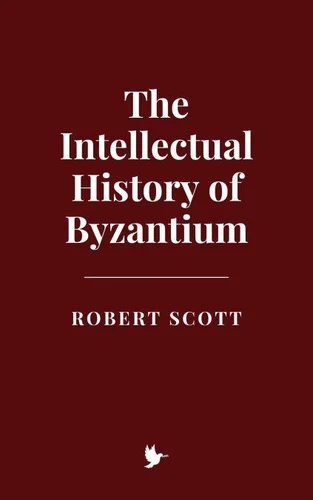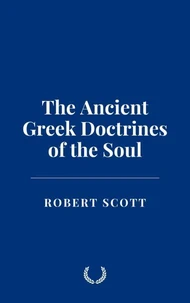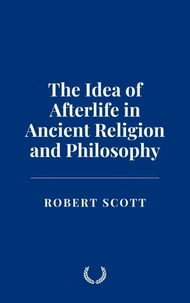The Intellectual History of Byzantium
Par :Formats :
Disponible dans votre compte client Decitre ou Furet du Nord dès validation de votre commande. Le format ePub est :
- Compatible avec une lecture sur My Vivlio (smartphone, tablette, ordinateur)
- Compatible avec une lecture sur liseuses Vivlio
- Pour les liseuses autres que Vivlio, vous devez utiliser le logiciel Adobe Digital Edition. Non compatible avec la lecture sur les liseuses Kindle, Remarkable et Sony
 , qui est-ce ?
, qui est-ce ?Notre partenaire de plateforme de lecture numérique où vous retrouverez l'ensemble de vos ebooks gratuitement
Pour en savoir plus sur nos ebooks, consultez notre aide en ligne ici
- FormatePub
- ISBN8230492283
- EAN9798230492283
- Date de parution15/01/2025
- Protection num.pas de protection
- Infos supplémentairesepub
- ÉditeurIndependently Published
Résumé
The Byzantine Empire, often described as the continuation of the Roman Empire in the East, spanned over a millennium, from the reign of Emperor Constantine I in 330 AD to the fall of Constantinople in 1453. Despite its eventual demise, the Byzantine Empire played a pivotal role in preserving and transforming the intellectual traditions of antiquity, particularly those of Greece and Rome, while also shaping the course of medieval Christian thought.
The intellectual history of Byzantium is thus not just a continuation of the classical world but a distinct development that melded Christian theology with ancient Greek philosophy, creating a unique philosophical and theological framework that influenced both the medieval West and the Islamic world. The Byzantine Empire was defined by its complex relationship between the sacred and the secular, with the Emperor often seen as God's representative on Earth, guiding both the temporal and spiritual affairs of the empire.
This duality between the political and religious spheres permeated Byzantine intellectual life, deeply influencing the empire's philosophy, theology, and science. The intellectual elite, consisting of scholars, theologians, and philosophers, often found themselves working within the constraints of religious orthodoxy. At the same time, they were tasked with preserving and transmitting the classical knowledge of the ancient world.
Thus, Byzantine intellectual life is characterized by a tension between the classical heritage of the Greco-Roman world and the demands of Christian orthodoxy.
The intellectual history of Byzantium is thus not just a continuation of the classical world but a distinct development that melded Christian theology with ancient Greek philosophy, creating a unique philosophical and theological framework that influenced both the medieval West and the Islamic world. The Byzantine Empire was defined by its complex relationship between the sacred and the secular, with the Emperor often seen as God's representative on Earth, guiding both the temporal and spiritual affairs of the empire.
This duality between the political and religious spheres permeated Byzantine intellectual life, deeply influencing the empire's philosophy, theology, and science. The intellectual elite, consisting of scholars, theologians, and philosophers, often found themselves working within the constraints of religious orthodoxy. At the same time, they were tasked with preserving and transmitting the classical knowledge of the ancient world.
Thus, Byzantine intellectual life is characterized by a tension between the classical heritage of the Greco-Roman world and the demands of Christian orthodoxy.
The Byzantine Empire, often described as the continuation of the Roman Empire in the East, spanned over a millennium, from the reign of Emperor Constantine I in 330 AD to the fall of Constantinople in 1453. Despite its eventual demise, the Byzantine Empire played a pivotal role in preserving and transforming the intellectual traditions of antiquity, particularly those of Greece and Rome, while also shaping the course of medieval Christian thought.
The intellectual history of Byzantium is thus not just a continuation of the classical world but a distinct development that melded Christian theology with ancient Greek philosophy, creating a unique philosophical and theological framework that influenced both the medieval West and the Islamic world. The Byzantine Empire was defined by its complex relationship between the sacred and the secular, with the Emperor often seen as God's representative on Earth, guiding both the temporal and spiritual affairs of the empire.
This duality between the political and religious spheres permeated Byzantine intellectual life, deeply influencing the empire's philosophy, theology, and science. The intellectual elite, consisting of scholars, theologians, and philosophers, often found themselves working within the constraints of religious orthodoxy. At the same time, they were tasked with preserving and transmitting the classical knowledge of the ancient world.
Thus, Byzantine intellectual life is characterized by a tension between the classical heritage of the Greco-Roman world and the demands of Christian orthodoxy.
The intellectual history of Byzantium is thus not just a continuation of the classical world but a distinct development that melded Christian theology with ancient Greek philosophy, creating a unique philosophical and theological framework that influenced both the medieval West and the Islamic world. The Byzantine Empire was defined by its complex relationship between the sacred and the secular, with the Emperor often seen as God's representative on Earth, guiding both the temporal and spiritual affairs of the empire.
This duality between the political and religious spheres permeated Byzantine intellectual life, deeply influencing the empire's philosophy, theology, and science. The intellectual elite, consisting of scholars, theologians, and philosophers, often found themselves working within the constraints of religious orthodoxy. At the same time, they were tasked with preserving and transmitting the classical knowledge of the ancient world.
Thus, Byzantine intellectual life is characterized by a tension between the classical heritage of the Greco-Roman world and the demands of Christian orthodoxy.























